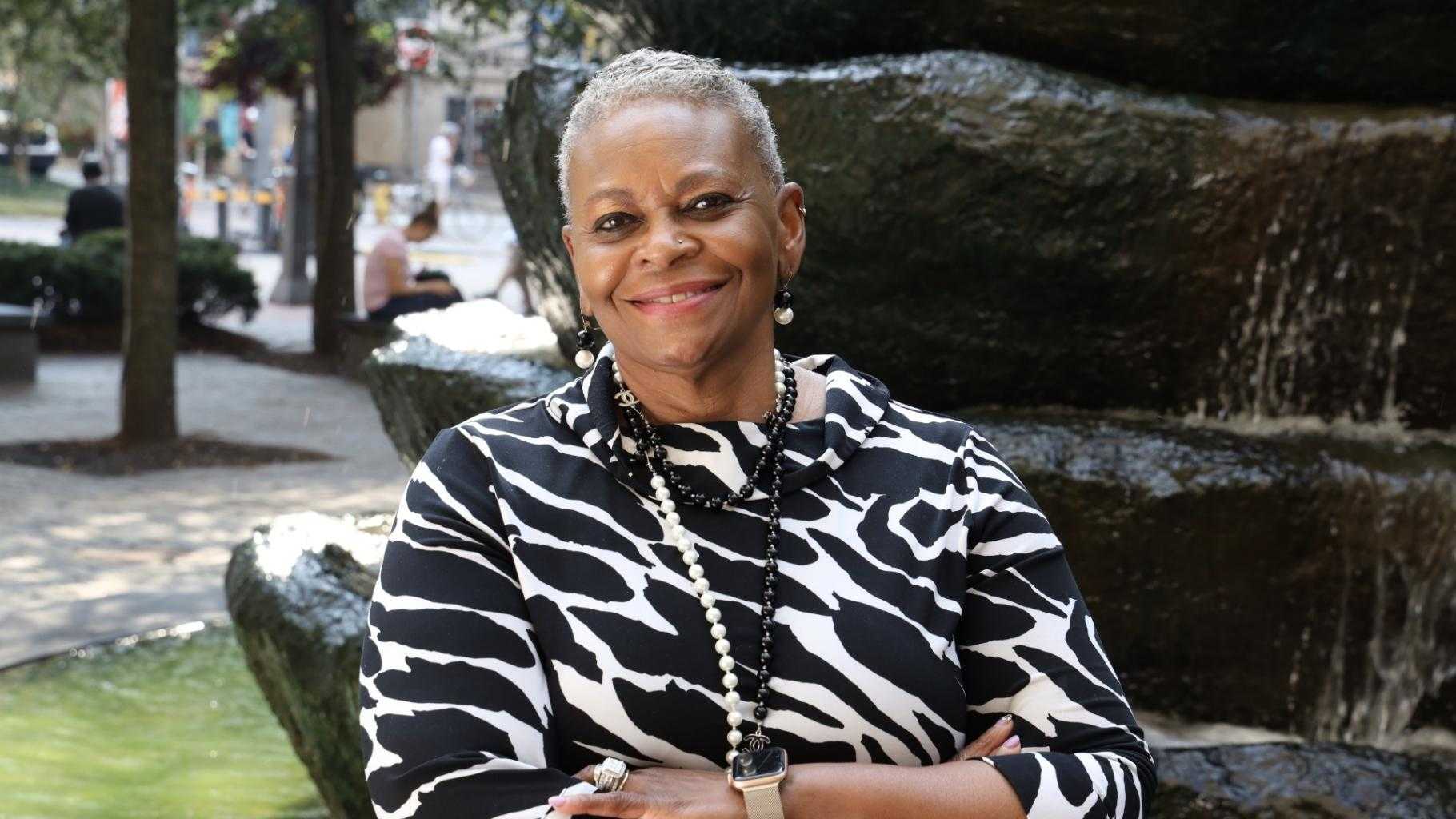
Dr. Margaret Larkins-Pettigrew, OBGYN and SVP, chief clinical diversity, equity and inclusion officer for Highmark Health, has dedicated her life to caring for mothers and babies. Today, she focuses on diversifying the workforce and advocating for equitable health outcomes. One major project: a comprehensive effort to save Black mothers’ and babies’ lives.

Q. As a large organization, how is Highmark addressing Black maternal health locally?
We started a program called First Steps and Beyond because we have such a high rate of death for Black babies and moms in Pennsylvania. The program is about reducing racial disparities in maternal health by expanding prenatal, pregnancy and postpartum care, and following Black babies through their first year of life. A major part of this work is moving the needle on the structural racism behind these disparities.
We know that racism anywhere kills. In a clinical setting, this can show up in the decisions health care providers make based on unconscious bias. We wanted to tackle how women are treated, how they're listened to pre-pregnancy, during the pregnancy journey and after pregnancy. Whether it’s conscious or unconscious, racism and unconscious bias can result in Black mothers not being respected or listened to. And that can lead to bad outcomes. We’re addressing this by training providers and finding more opportunities for Black mothers to access culturally humble care that respects who they are and what they want. That includes partnering with communities, doulas and midwives.
Q. What about the effect of racism on health outside of the doctor’s office?
The concept of “weathering” that people talk about is really the classic description of what happens with Black women their entire lives. Just being placed in situations where they're pre-judged, not given opportunities. To be born a Black woman in this country really takes its toll. This toxic stress wears on the bodies of Black women to the point where, when they are in the maternity space, they have less chance of surviving than other women. Their babies have less chance of surviving than other women’s. Part of my life’s mission is to make sure that we change the trajectory for all women, but specifically for Black women who face such overwhelming stress every single day.
Q. How can cultural humility—which is different from cultural competence—play a role in combatting racism’s impact?
Cultural competence is about having an understanding of and respect for an individual’s different values, attitudes and beliefs. That’s critical. Cultural humility is about empathy. It’s about sympathy and bonding with someone for who they are. It’s being able to take care of the whole person, giving them holistic care because you've taken the time to understand where they come from. It begins with self-reflection, looking at what biases we may have. Humility is a lifelong learning process. When I took that Hippocratic oath, to do no harm, it meant that not only am I not going to prescribe the wrong medication or the wrong procedure, but that I am going to look into the lives of the people that come into my space, understand where they're coming from. That’s how cultural humility can make a difference in their lives.